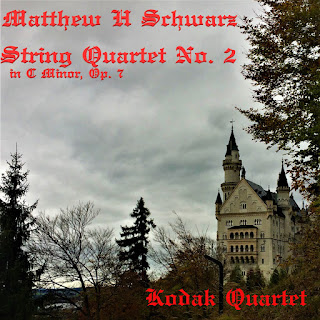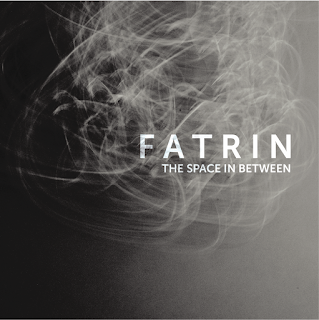Ania Vu - Sept Vignettes
Ania Vu - Sept Vignettes
The University of North Georgia's (UNG) 5th Annual Research on Contemporary Composition (ROCC) Conference, 30-31 October 2021, allowed young composers and scholars to present new works, papers, and research to both in-person and virtual audiences.
Ania Vu, a Vietnamese-Polish pianist/composer, is currently a Ph.D. candidate in music composition at the University of Pennsylvania. Her work for unaccompanied contrabass, Sept Vignettes, was originally composed in 2020 for bassist Andres Vela at the Tanglewood Music Center 2020. The piece was later edited in 2021 and performed by Maggie Cox (video recording available here). Vu was fortunate enough to have the updated version of this complex piece prepared and performed by bassist Dr. Luca Lombardi, professor of double bass at UNG. The work demands a significant amount of control from the player, and Dr. Lombardi executed this with great ease.
Sept Vignettes was an interesting piece to hear in live performance. The work is a set of seven short miniatures, which the composer specifies must be performed together in entirety. Vu describes them as a set of theme and variations, but this seems to be purely from a compositional standpoint, as most of the movements are too timbrally wild to be aurally recognized as a variation of previous material. The seven vignettes are more of etudes in extended techniques for the double bassist. Each movement takes a dedicated sound world and explores one specific noise which is possible on the bass. The first two, really just two halves of one slightly longer movement, explore the normal arco sound of the bass, but in the incredibly high range with awkward leaps and needless harmonics for the performer to catch. Watching Dr. Lombardi roll across the strings in the stratosphere of the instrument, it was clear that several arpeggiated passages could have achieved the same effect without demanding as much physicality from the performer. Vu asks for passages to be played 'as fast as possible', and while Dr. Lombardi complies, the instrument simply cannot resonate and sound comfortable doing what is asked of it.
The third movement, entirely pizzicato, was probably my favorite section of the work. I hope that Vu plans to use this material, because I would adore to hear an entire solo work for bass inspired from this movement. Dr. Lombardi gave this movement a dance-like feeling, and expertly navigated Vu's demands of technique and musicality. The next three movements continue to explore unconventional sounds. Often these sections were more visually interesting than musically, and would not have worked at all if not watched live. In addition, the extended techniques were not always effective. The fourth movement combined hammer-ons with puta d'arco, or only using the very tip of the bow. It created a weak sound, which only did not tire the listener because of the short length of the movement. The fifth took advantage of an alien-like col legno sound, combined with glissandi. To me this sounded like it was taken straight out of the second movement of Einojuhani Rautavaara's double bass concerto, Angel of Dusk.
Vu surprised me with the last two movements, as she somehow found a way to literally turn the double bass into a noise machine. She took advantage of Dr. Lombardi's competence and confidence in improvisation to allow him to really own the noises coming out of his instrument. In the last vignette, Vu took the acoustic double bass and made it aurally appear as a completely electronic instrument. She asked for emphasis on the harmonic series, extra noise, and oscillations across each string.
Overall, I found the work more enjoyable to watch in live performance than to actually listen to Vu's music, and I believe that Sept Vignettes are more of quasi-etude pieces than musical episodes. However, the focus on the variety of sound worlds which can be created by an acoustic solo instrument makes Sept Vignettes an easily rememberable work.



Comments
Post a Comment